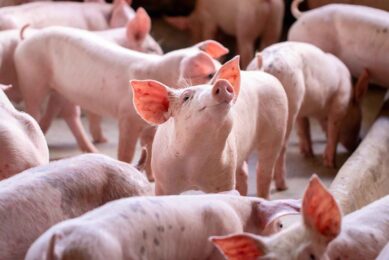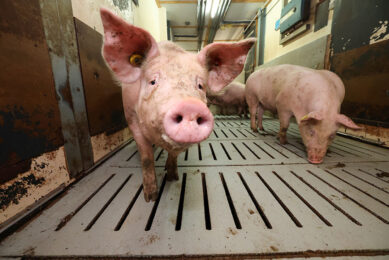Mechanisms of two infectious swine diseases studied
Students at Kansas State University are researching some of the most important infectious diseases in swine to improve the long-term health of pigs.
The K-State students are working in the laboratory of Bob Rowland, K-State professor of diagnostic medicine and pathobiology. Rowland’s research focuses on swine virology and studying the inner workings of the porcine reproductive and respiratory syndrome virus and porcine circovirus type 2 virus.
Maureen Kerrigan, Rowland’s laboratory manager, said the students have been collecting samples to compare health factors and genetic profiles of swine.
“The big picture here is to improve swine health long-term through vaccination or by understanding which pigs genetically are more resistant to viruses without having to vaccinate them,” Kerrigan said.
Porcine reproductive and respiratory syndrome virus is a highly infectious disease that causes a flu-like condition with high fever, loss of appetite and an overall deterioration of health. Porcine circovirus is a disease that compromises a pig’s immune system with clinical signs like skin rashes, jaundice, fever, diarrhea, poor growth, weight loss and death.
Kerrigan said the lab research involves work with swine genetics and virus proteins. The researchers are looking at how the proteins differ in infected and noninfected swine to help understand if certain proteins can be used for protection from the viruses.
Join 18,000+ subscribers
Subscribe to our newsletter to stay updated about all the need-to-know content in the pigsector, three times a week. Beheer
Beheer










 WP Admin
WP Admin  Bewerk bericht
Bewerk bericht